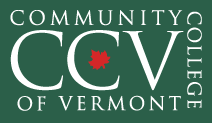
According to the US Census people with college degrees earn more than people without. This fact shouldn't surprise us as we see its evidence every day. So what's the problem? Why aren't more people making the move to enroll in college? What are the barriers preventing some of our potential students from attaining their goals?
College is expensive. It requires a large commitment of time and money, both hard to come by when you're living in poverty. Financial aid is available for students but often, even with grants and loans, students do not have enough to cover the cost of their tuition. They struggle to find a way to pay for college while at the same time keeping up with their everyday bills. It's true that scholarships are available, especially for high school achievers, but many people living in poverty don't go through high school planning for the next step of college. Those living in poverty, especially the intergenerational poor don't view college as an option, or if they do, don't know how to go about preparing for higher education.
Another barrier is that many students coming from a background of poverty are first generation college students. This means that they may not have the resources available within their own families or support networks as students with a family history of college. Not only do they not have the internal resources available but they don't know how to access the external resources that may be available to them. There are several programs like TRIO available to help students but the issue remains that they often don't know about these programs or how to utilize them.
Once a potential student overcomes these obstacles they can still suffer during the course of their education due to external stressors. When a student is worried about childcare or paying the rent or is skipping a class to pick up an extra shift at work, their academic work suffers. Because other matters are so pressing, education cannot be the priority.
Depressing isn't it? What can we do? We can demand an increase in funding for higher education both federally and locally. Increased funding would mean that the cost of tuition for students could be kept lower and therefore more affordable. We often hear politicians lament about "brain-drain" and the lack of a well trained, ready to work force. Education is the key to both of those issues so let's support higher education with more funding. Institutions of higher learning also need to get in on the act. We need more colleges and universities to make a commitment to creating and maintaining economic diversity on their campuses. Do what you can, whether it be allocating a portion of your endowment to low-income scholarships or hosting public information sessions to help low-income students find out about the resources available to them.
As individuals we can do more. Volunteer in a learning lab, encourage high school students to attend a college fair or help someone fill out their financial aid paperwork. We can all be doing things, both grand and small, to help those in poverty realize that higher education is an option for them if they so chose.
Wednesday, October 15, 2008
Blog Action Day: Is Higher Education an Option?
Posted by Adam G. Warrington at 12:00 PM
Subscribe to:
Post Comments (Atom)

.gif)




No comments:
Post a Comment